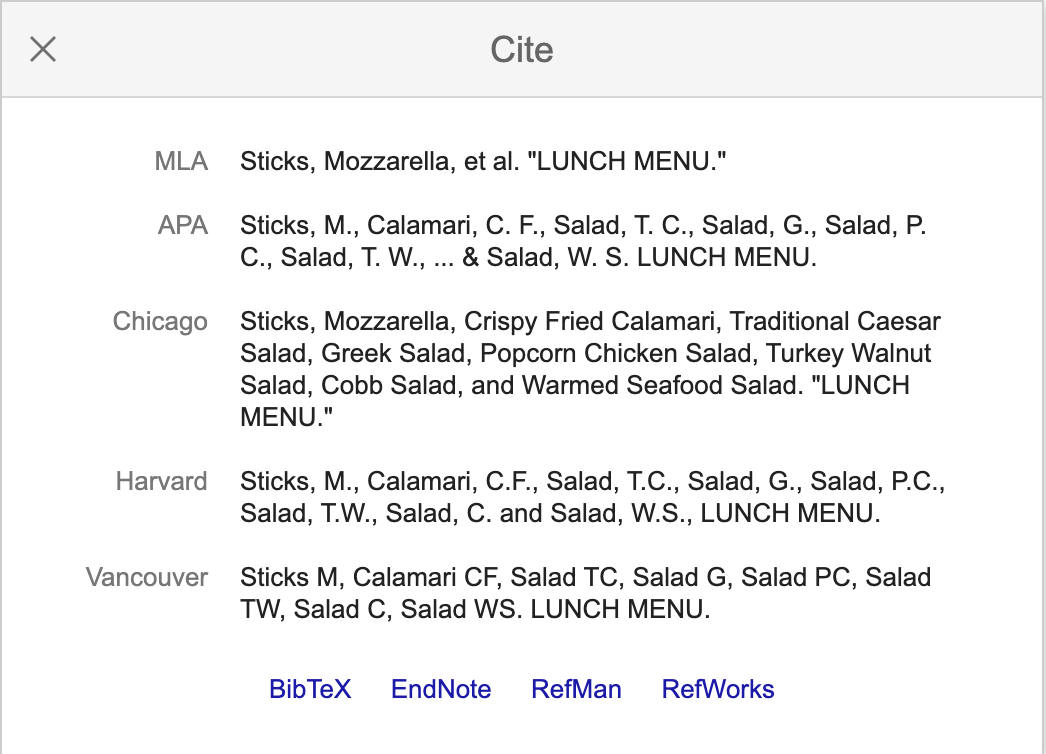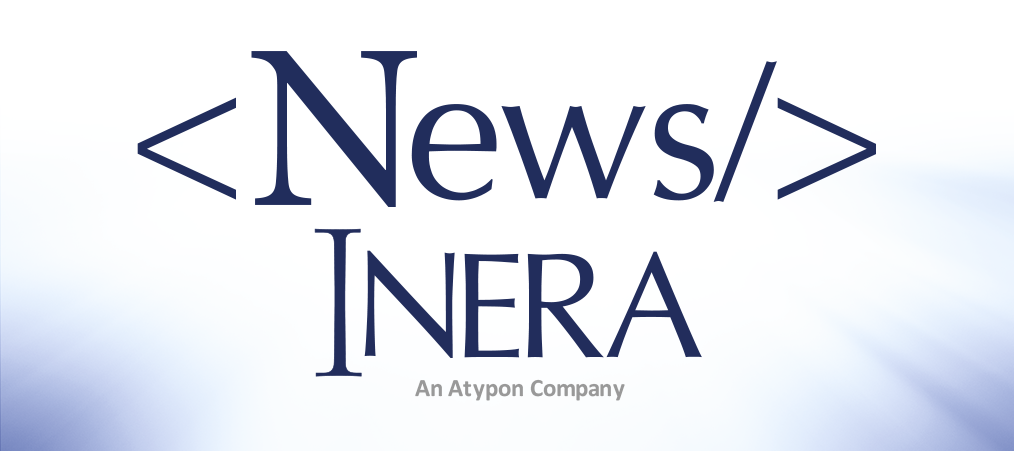What’s new at Inera and around the industry
May 2020 Newsletter
Webinars, ISO, NISO, and more in the May 2020 Newsletter!
Online training and upcoming free webinar
Would you or your colleagues benefit from an eXtyles refresher, a deep dive into Word, or an XML workshop? For years, we’ve offered many of our courses as online training sessions, and now is a great time to explore them! Courses can be customized for your particular needs, so please reach out if you’d like to learn more.
We also plan to offer some free short webinars beginning this summer, and we’ll be starting with an always-popular topic: how to optimize your Microsoft Word settings for use with eXtyles. Look out for a synopsis and registration information, which we’ll be sending out shortly. And if you’d like to help us gauge interest in this and similar webinars, please click the button below (no commitment implied!):
#eXtyles20th: Q&A with eXtyles customer Norwegian Medical Association
 As part of our #eXtyles20th celebrations, we’re sitting down with a variety of eXtyles customers to chat about their experiences! Our latest Q&A is with Einar Ryvarden at the Journal of the Norwegian Medical Association (Tidsskriftet den norske legeforening), which began
As part of our #eXtyles20th celebrations, we’re sitting down with a variety of eXtyles customers to chat about their experiences! Our latest Q&A is with Einar Ryvarden at the Journal of the Norwegian Medical Association (Tidsskriftet den norske legeforening), which began
using eXtyles in their workflow in 2010.
You’ll find the whole conversation on the Inera blog!
Save the date: eXtyles Arc + Typefi webinar
Join Inera and our partners at Typefi for a free webinar showcasing how eXtyles Arc and Typefi work together to achieve a fully automated end-to-end article
workflow!
Title: End-to-end Automation with eXtyles Arc + Typefi
Date: June 17, 2020
Time: 10:00 a.m. Eastern
ISO adopts NISO STS
Since 2012, the International Organization for Standardization has produced its published standards using ISOSTS, an XML model for standards based on JATS and designed for use by national standards bodies.
ISO recently shifted to using NISO STS (ANSI/NISO Z39.102:2017), published in 2017, to produce standards. NISO STS is part of the JATS family, is fully backward compatible with ISOSTS, and was developed for use both by national and international standards bodies and by standards development organizations.
You can read all about ISO’s transition process on the Inera blog! Please reach out to us if you have questions about making this transition at your organization.
End of an era: Celebrating Irina Golfman
 Irina Golfman, Inera’s founder, will start her well-deserved retirement on May 30. Irina founded Inera in 1992 and has played a key role in Inera’s growth and success over the last 28 years. “I’m enormously proud of Inera’s capable and dedicated team and know that I am leaving our customers in great hands,” said Irina.
Irina Golfman, Inera’s founder, will start her well-deserved retirement on May 30. Irina founded Inera in 1992 and has played a key role in Inera’s growth and success over the last 28 years. “I’m enormously proud of Inera’s capable and dedicated team and know that I am leaving our customers in great hands,” said Irina.
Please join us in wishing Irina all the best in her future endeavors!
Standards news: NISO launches CRediT Taxonomy initiative
 In late April, the National Information Standards Organization (NISO) launched an initiative to formalize and develop the Contributor Role Taxonomy (CRediT) as an ANSI/NISO standard. Both NISO Voting Members and the wider community have expressed strong support for this work. Want to offer feedback on the initial CRediT standard or participate in the NISO CRediT Standing Committee? Watch the NISO CRediT page for updates.
In late April, the National Information Standards Organization (NISO) launched an initiative to formalize and develop the Contributor Role Taxonomy (CRediT) as an ANSI/NISO standard. Both NISO Voting Members and the wider community have expressed strong support for this work. Want to offer feedback on the initial CRediT standard or participate in the NISO CRediT Standing Committee? Watch the NISO CRediT page for updates.
Strict Open XML, Word, and eXtyles
Have you recently tried to open a .docx file in Word 2010 and been told you need a file converter? Have you opened a .docx file in Word 2013+ and tried to activate it in eXtyles, only to become stuck in an infinite loop? If so, you’ve discovered the Strict Open XML document format!
These documents are “created by a third-party (non-Microsoft) software product in compliance with the International Standard ISO/IEC 29500 Office Open XML (OOXML).” Word 2013+ supports most of the standards outlined in ISO/IEC 29500; this means you can open OOXML files successfully but may see some inconsistencies. If you’re using Word 2007/2010, you’ll get this classic error message: “This file was created by a newer version of Microsoft Word and a converter is needed to open it. Do you want to download the converter from Office.com?”
We’ve adjusted how eXtyles handles “non-native” file formats to resolve the infinite loop problem in Word 2013+. eXtyles builds starting from April 24, 2020 (Build 4514 and forward), will now re-save these documents as .docx Word files so that they can be activated successfully. Still using Word 2007 or 2010? You may need to follow Microsoft’s instructions to download the file converter from Office.com.
eXtyles news: Metadata in eXtyles SI
 Our Development team has been hard at working updating and improving eXtyles SI, our server implementation of eXtyles. eXtyles SI customers can now load dynamic metadata from an external XML file, such as a transmittal file from a submission system, as well as other updates to improve batch processing of Word files.
Our Development team has been hard at working updating and improving eXtyles SI, our server implementation of eXtyles. eXtyles SI customers can now load dynamic metadata from an external XML file, such as a transmittal file from a submission system, as well as other updates to improve batch processing of Word files.
You’ll find all the details on the Inera blog. If you use eXtyles SI and are interested in implementing any of these features, contact us to discuss the details!
Preprint archives step up
Medical journals and preprint archives have been in the spotlight since the advent of COVID-19. This Nature article explains the approaches preprint servers such as bioRxiv and medRxiv are taking to deal with surging submissions and screen out poor-quality research.
Are you seeing increasing numbers of preprint citations in bibliographies as a result of COVID-19? If so, stay tuned for some exciting news in next month’s newsletter!
Edifix: What’s new & improved
Our Edifix development team is always on the lookout for ways to improve the user experience! Find out what we’ve been up to on the Edifix blog.
#FunFactoid
The weirder side of automated reference processing
A tip of the hat to Twitter user @AlexanderRKlotz of CSU-Long Beach for alerting the scholarly publishing world to the funniest automated reference parsing situation we’ve ever seen!
We don’t know how or why these lunch menus parsed as scientific citations ended up on Google Scholar, but we hope you’ll enjoy them as much as we did. Here’s a sample citation:

It just goes to show that accurately identifying, formatting, parsing, and linking references isn’t necessarily as easy as it looks!
